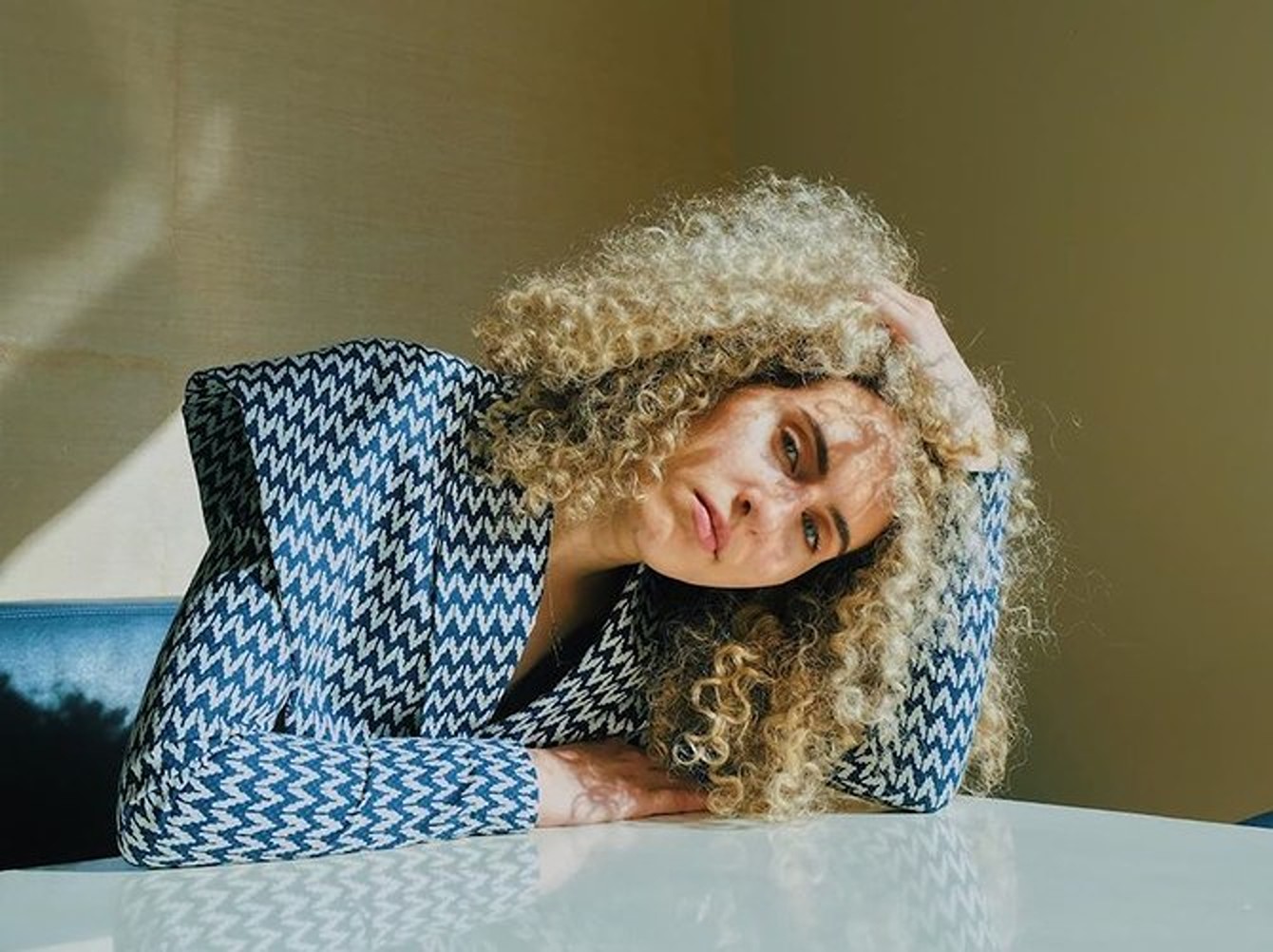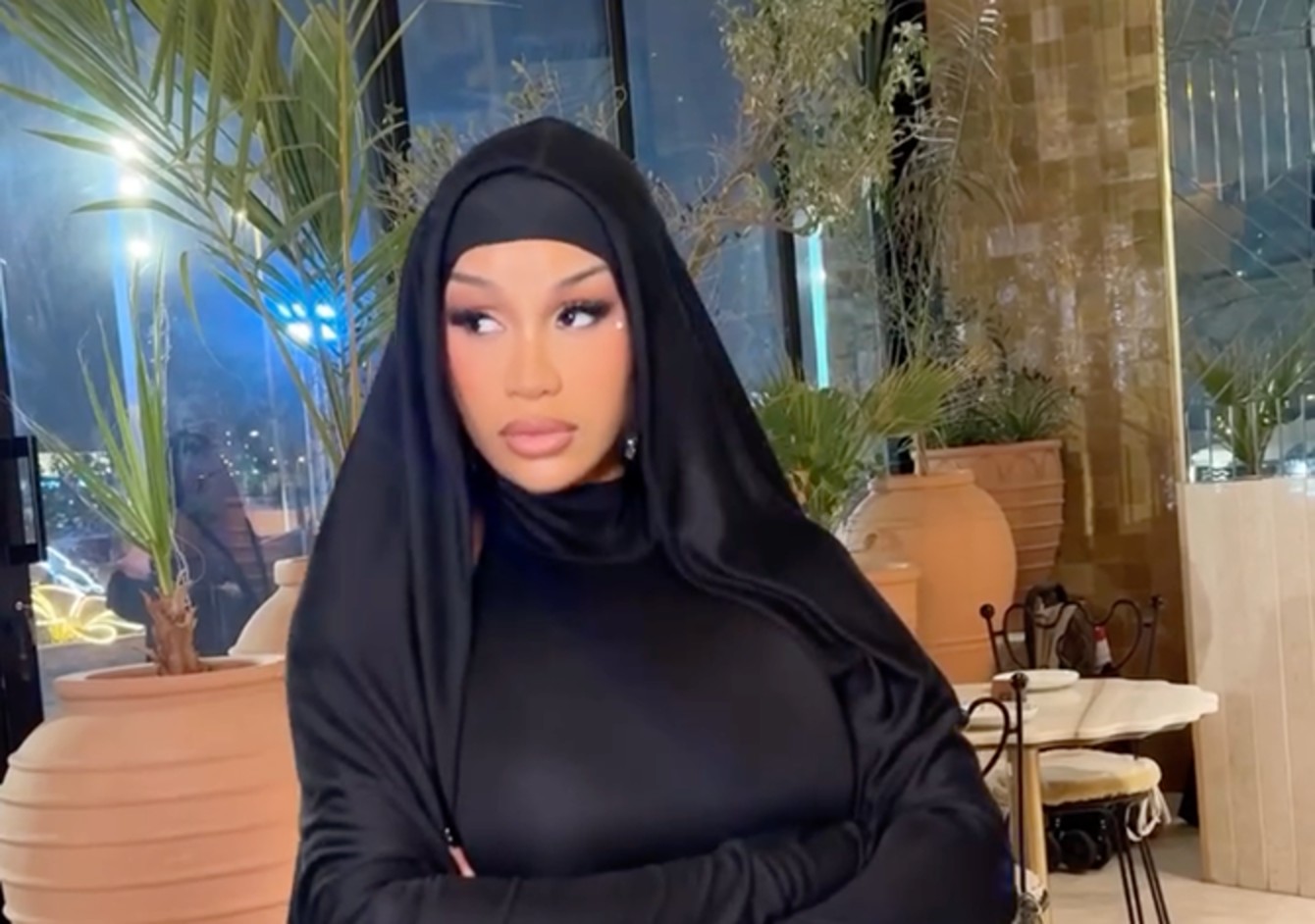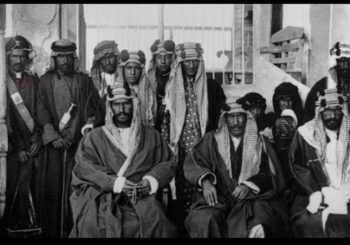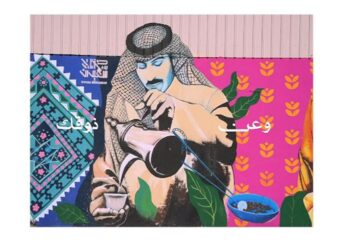Long before the world knew music spectacles like Coachella, and more recently, Saudi Arabia’s MDL Beast Festival, the Arabian Peninsula was renowned for its own grand cultural stage: the ‘poetry market,’ a gathering that celebrated poets who wielded their tongues for beauty.
If an entire market devoted solely to poets and poetry is not proof enough of how deeply poetry runs in the Arab soul, then nothing else could be. Poetry has long been ingrained into the very DNA of Arabs, so integral that it once shaped everyday communication, and, more remarkably, even served as the medium for marriage and divorce.
In ancient Arabia, women would at times end their marriages through poetry; it was a vessel for their distinctly feminine truths, emotions only they could feel, and only they could transform into words. Building on this age-old tradition of poetry is Saudi singer and songwriter Tamtam, who lives between Riyadh and Los Angeles.
Much like her ancestors, she sings as though she were an ancient nomadic poet in the desert, speaking not only to humans, but to an otherworldly realm where only poets dwell and abide. In one of her latest songs, Qadar (Destiny, 2025), she sings, “the desert calls me to sing, and my beloved calls me to prosperity, so my heart splits in two.”
Born and raised in Riyadh, Tamtam learned early on how to blend different cultures and musical influences together, not in a way where one overshadows the other, but in a way that feels organic, authentic, and true to her roots. “I grew up listening to a wide mix of artists from both the U.S. and the Arab world; everything from Fairuz, Michael Jackson to more recently getting into Asmahan and music from old Egyptian films,” she tells Saudi Streets.
“That blend of cultures definitely shaped my sound. I’ve always felt like I’m bridging different worlds, and my music reflects that.”
As part of a new generation of Saudi artists who grew up amid technology and the rapid societal transformations of the Kingdom, Tamtam approaches her music not with the aim of rejecting tradition, but of expanding and reshaping it, making it resonate with younger listeners while remaining accessible to global audiences.
For instance, in her track Ismak (Your Name, 2021), she opens with a melody drawn from the traditional Ardah, a folk dance and musical form long performed at celebrations and festivals across the Arabian Peninsula, and reimagines it with fresh lyrics about love. The music video also deepens this fusion of old and new, as Tamtam stands atop the mountains alongside other women, dressed in traditional Saudi attire, holding high the jambiya (also known as janbiya), the ceremonial dagger that has long been a symbol of Saudi pride and heritage.
Her music emerges at a time when perceptions of Saudi music are often confined to the Khaleeji sound, but Tamtam is breathing new life into her culture in a way that feels deeply personal, rooted in self-expression as much as in heritage, rather than solely in communal tradition. “There’s this tendency to put Saudi artists into a box, as if everyone has to make Khaleeji music or fit a specific mold,” she says. “But Saudis are incredibly diverse in their backgrounds and influences. There’s no one way Saudis need to sound, and that’s something I want to reflect through my work.”
Inside a Saudi home

One of the other ways Tamtam reimagines Saudi music and culture is by beginning from the inside out, inviting listeners into the intimate, everyday spaces of a Saudi life, from the home to the deeply personal ways people navigate marriage and romance. In her music video for RISE (2018), a collaboration with acclaimed Saudi filmmaker Meshal Aljaser, she laces the video with visuals from a Saudi household, such as an incense holder adorned with a rose, which is a beloved cultural symbol tied to the famed roses of the Taif region.
Later in the video, she serves two glasses of juice in a living room to a Saudi man, portrayed as a mannequin, which is a tongue-in-cheek metaphor for his disinterest and emotional absence, even as he is in the act of proposing marriage to her. Through these intimate domestic details, Tamtam addresses some of the most real and pressing themes in Saudi society, such as marriage and love, portraying them as they are genuinely lived and felt.
“The video touches on arranged marriage and the kind of pressure some women feel, even when there’s technically a choice, it can still feel like you don’t really have one,” she says. “The message of the video and the song is the same: don’t let the outside world dictate your path. If you move with good intentions, surrender to God, and stay connected to what you love, you’re already doing enough. The rest is just noise.”
It may seem that romance or love is not often embraced as a central theme in Saudi culture, yet in ancient Arabic poetry, romantic love was a constant presence. The ghazal, also known as the love poem, was a cherished tradition, known for its tenderness and, at times, its explicit and sensual nature. Literary historians even note that as much as 70 percent of Arabic poetry revolved around romance.
Carrying this legacy forward, Tamtam’s music often explores themes of love, at times nodding to iconic poets like Nizar Qabbani, celebrated for his sensual and romantic verse, as she does in her track 8 to 8 (2024). “Qabbani’s poetry has always resonated with me; the emotion, the sensuality, the boldness. His words remind me to stay fearless in how I express love and truth,” she says.
A striking example of the poetic force in her music appears in her latest song, Ahrub (Escape, 2024), where she sings with eloquence, “I thought you were my country, I thought you were my home… how can I run away when you inhabited me while I inhabited you?”
In this line, love becomes a homeland, something inhabited, breathed, and impossible to abandon. The way she compares love to a country, so beautifully and poetically, captures the way Arabs so often feel and express love, for in a region where homeland and exile are bound tightly to identity, love naturally becomes an extension of that connection to place. It is an emotion steeped in belonging, as for many Arabs, love and marriage are also a journey back to their culture and their roots.
Building bridges for Saudi artists
After more than a decade in the industry, Tamtam has evolved from being solely an artist to also becoming the founder of Goast Flower, her own independent music label, as well as the Saudi Music Community initiative, an effort dedicated to building bridges within the Kingdom’s music scene by connecting artists, producers, managers, and other creatives across both the business and artistic spheres.
“Community is everything. If we don’t build it ourselves, no one else will,” she says. “It’s about collaboration and support, helping the music ecosystem grow, thrive, and contribute meaningfully to the cultural economy.”
Saudi Arabia has been easing restrictions on local music venues, paving the way for a burgeoning grassroots scene where local musicians perform in smaller spaces, creating opportunities for emerging artists to make their mark. In this moment of transformation, Tamtam is taking an active role in helping smaller Saudi artists rise, launching a Saudi Music Community database that allows musicians to search for opportunities and connect with the industry online.
“Support looks simple but goes a long way: stream their songs, buy their merch, attend their shows, book them for gigs, share their music with friends. Just listen. We don’t need charity, we need genuine engagement,” she says.
“What gives me hope is that this new generation isn’t waiting for permission. They’re building, experimenting, and owning their stories. I think Arab artists are expanding in all directions, and that’s beautiful.”








Comments (0)